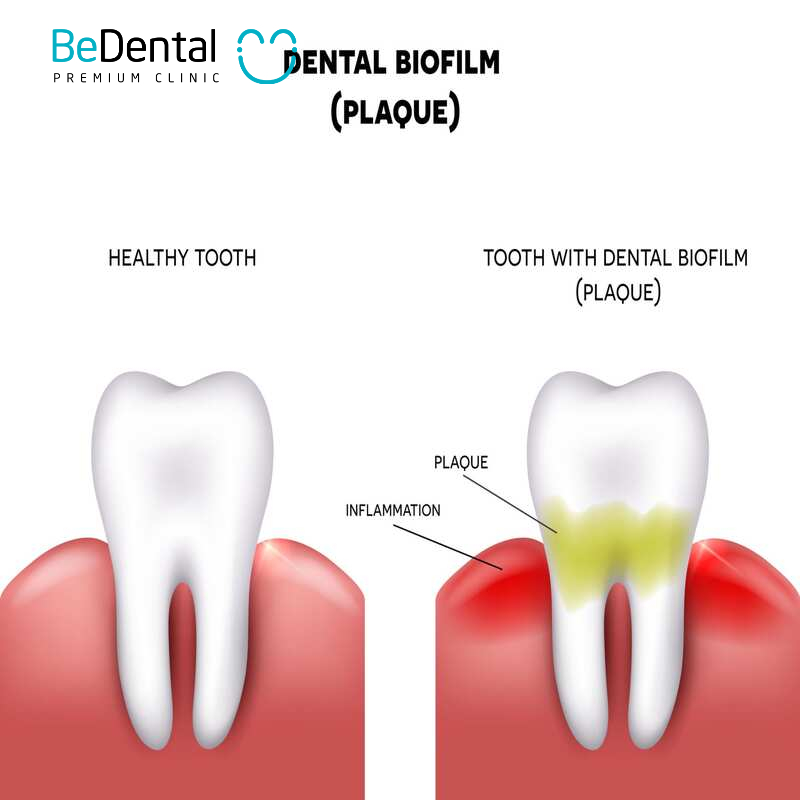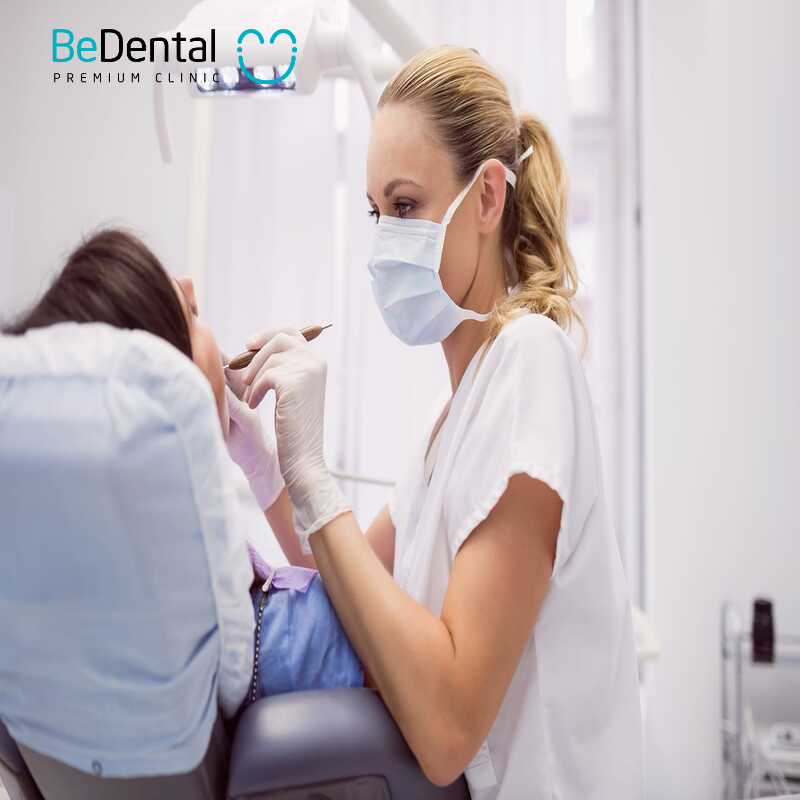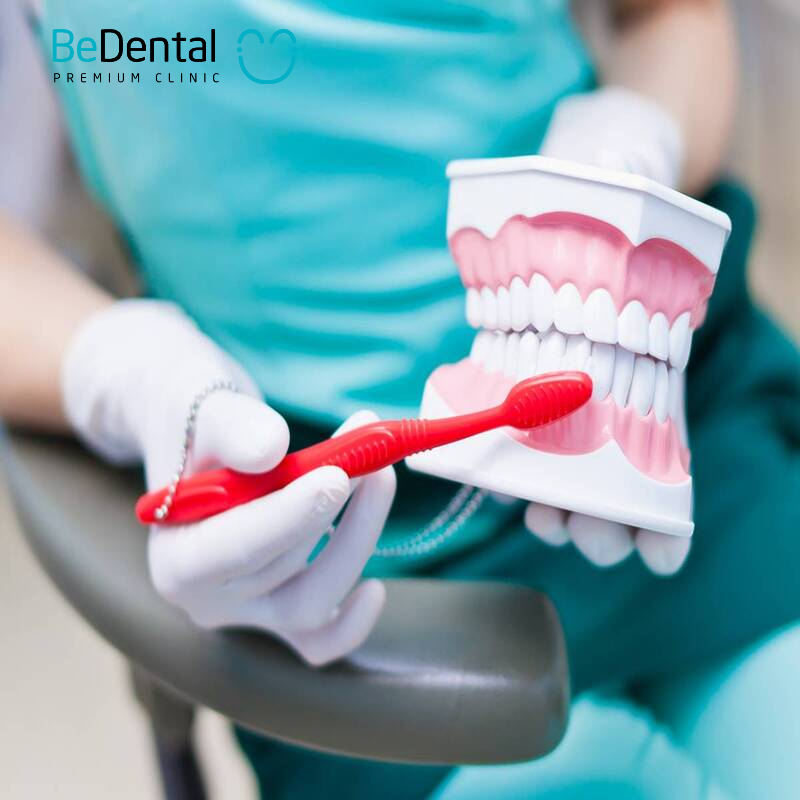Studies show that around 68% of adults experience plaque buildup, with 30% developing gum disease as a result. Plaque is a sticky layer of bacteria that forms when food, saliva, and bacteria mix. If left untreated, it hardens into tartar within 48 hours, leading to enamel damage and gingivitis. Regular daily oral care is essential to prevent this from happening. Follow us in this article: Causes of Dental Plaque Formation and its harmful effects on oral health.
Causes of Dental Plaque Formation
Plaque buildup happens for several reasons, but the main one is the accumulation of food particles and bacteria on the teeth. Poor oral hygiene, along with habits like smoking and drinking coffee, also contribute to the increased formation of plaque. Here are Dental Plaque Causes of Formation:
Causes of Dental Plaque formation all over the world
Dental plaque is a common global issue, formed primarily due to poor oral hygiene and dietary habits. The consumption of sugary and starchy foods, such as bread, pasta, candy, and soft drinks, fuels bacteria in the mouth, leading to plaque buildup. In many developed countries, processed foods rich in sugars contribute significantly to this problem. Similarly, in developing nations, the increased availability of sugary snacks and drinks exacerbates plaque formation.

Inadequate oral care practices, including irregular brushing and flossing or improper techniques, are universal contributors to plaque accumulation. Socioeconomic factors also play a role, as limited access to dental care and education, particularly in rural or underserved areas, worsens the problem. For instance, in some regions of Africa and Southeast Asia, dental health awareness and professional services are less accessible, leading to higher rates of plaque and related dental issues.
Lifestyle factors contribute to plaque formation globally
Additionally, lifestyle factors like smoking and alcohol consumption further contribute to plaque formation globally. Smoking, in particular, increases the risk of plaque and tartar buildup, while the acids in alcoholic beverages can wear down enamel, creating a conducive environment for plaque. Cultural habits, such as the widespread use of chewing tobacco in South Asia, further intensify the problem. Addressing the global causes of dental plaque requires better access to dental care, increased education on oral hygiene, and awareness of the impacts of diet and lifestyle choices.
Popular causes of forming dental plaque in Vietnam
Popular causes of dental plaque formation in Vietnam is influenced by several key factors, many of which are rooted in lifestyle and dietary habits. Studies show that around 90% of the population suffers from dental issues related to plaque, with poor oral hygiene being one of the main causes. A diet rich in sugars and starches, typical in Vietnam due to the high consumption of rice, noodles, sweet snacks, and sugary drinks, contributes significantly to plaque buildup. Additionally, frequent snacking—common among both children and adults—further exacerbates the problem by providing a constant source of fuel for bacteria in the mouth.

Tobacco is a major cause of plaque formation in Vietnam
Tobacco use, particularly smoking, is another major cause of plaque formation, as smoking is quite prevalent, especially among Vietnamese men. This, combined with inadequate oral care practices, such as irregular brushing or improper techniques, contributes to the widespread issue. A lack of access to dental care, particularly in rural areas, compounds the problem, with many people unable to receive regular checkups or cleanings. Furthermore, the high intake of coffee and tea, which are popular beverages across the country, also plays a role in plaque and tartar accumulation. Addressing these issues through better oral hygiene education, increased access to dental services, and awareness of the risks associated with certain foods and habits is essential for improving dental health outcomes in Vietnam.
Timeline of Plaque Formation and Its Health Impacts
Dental plaque begins to form immediately after eating or drinking, especially after consuming sugary and starchy foods. Within 20 minutes to 2 hours post-meal, bacteria in the mouth digest sugars and starches, producing acids that kickstart plaque development. If not removed through brushing or flossing, plaque can continue to accumulate and harden into tartar within a few days.
- 24-48 hours: This is the optimal window to remove plaque before it hardens and transforms into tartar.
- Several days to one week: If left uncleaned, plaque can turn into tartar, making removal more difficult and necessitating dental intervention.
Health Risks Associated with Prolonged Plaque Presence
Tooth Decay: When plaque remains on tooth surfaces for too long, the acids produced by bacteria can erode tooth enamel, leading to cavities. Without treatment, cavities can progress deeper into the tooth, resulting in pulpitis and tooth infections, and may even require extraction.
Gum Inflammation and Periodontal Disease: Over time, plaque can extend to the gum line, causing irritation. You can check out the information in the article.“WHAT IS PLAQUE: A COMPREHENSIVE GUIDE TO UNDERSTANDING DENTAL PLAQUE”. If not cleaned, bacteria from plaque can lead to gingivitis, characterized by swollen, painful, and bleeding gums. In more severe cases, gingivitis can develop into periodontitis, a serious condition that can result in tooth loss if not treated promptly.
Increased Risk of Tartar Formation: Tartar is the hardened form of plaque, and once it forms, it becomes increasingly difficult to remove. Tartar not only affects the appearance of teeth but also allows bacteria to invade surrounding soft tissues, leading to infections and long-term damage to oral health.
Impact on Overall Health: Chronic periodontitis due to prolonged plaque presence can lead to serious health issues such as cardiovascular disease, diabetes, and stroke. Research has shown that bacteria from the mouth can enter the bloodstream, contributing to systemic inflammation and increasing the risk of these conditions.
Effects on Mental Well-Being and Quality of Life: The accumulation of plaque and tartar can lead to bad breath and tooth discoloration, causing many people to feel self-conscious in social interactions. Chronic halitosis caused by plaque and bacteria can adversely affect both professional and personal relationships.
Preventive Measures Against Dental Plaque
Proper oral care is essential for preventing plaque, tartar, and gum issues. Here are some key steps for maintaining a healthy smile:
- Brush properly: Brush at least twice a day—once in the morning and again before bed. Use a soft-bristled toothbrush and fluoride toothpaste. Brush gently, covering all surfaces of your teeth, including the front, back, and chewing areas.
A 2019 review of studies by Trusted Source indicated that using toothpaste with baking soda is an effective method for removing plaque.
- Floss daily: Brushing alone doesn’t remove all the plaque, especially between teeth. Flossing daily helps clear out food particles and plaque in those hard-to-reach spots.
- Use mouthwash: Mouthwash can help reduce bacteria and clean areas that brushing and flossing might miss. Opt for a fluoride or antibacterial mouthwash for added protection.
Here are some great mouthwash options to consider: Listerine Cool Mint helps kill bacteria and prevent cavities; Crest Pro-Health Multi-Protection guards against cavities and plaque; TheraBreath Fresh Breath is alcohol-free and effectively controls bad breath; Colgate Total Advanced Freshness cleans your mouth and leaves your breath fresh; ACT Anticavity Fluoride Rinse strengthens tooth enamel; Altoids Mint Mouthwash offers a convenient, minty flavor; and Burt’s Bees Natural Oral Care Mouthwash is a natural choice free from harmful chemicals. Be sure to check the ingredients to find one that fits your oral health needs.
Make sure to maintain a safe and healthy diet
- Limit sugary and starchy foods: Sugary and starchy foods feed the bacteria that lead to plaque and cavities. Cut back on snacking and choose healthier options like fruits, vegetables, and nuts.
- Stay hydrated: Drinking water helps wash away food particles and increases saliva flow, which naturally cleans your teeth. Try to avoid acidic drinks like soda and juice, as they can wear down enamel.
- Kick bad habits: Smoking, coffee, and alcohol can lead to more plaque, tooth stains, and gum problems. Quitting these habits can improve your oral health and overall well-being.

Regular dental visits
See your dentist twice a year for professional cleanings and checkups. These visits can help catch issues early and remove tartar buildup.
By following these steps, you’ll keep your teeth and gums healthy, prevent future problems, and enjoy a brighter smile for years to come. Although dental plaque is small and often goes unnoticed, it can cause serious oral health problems such as tooth decay, gum disease, and even periodontitis if not addressed in a timely manner. Proper oral care, consistent hygiene practices, and regular dental visits are crucial to preventing plaque buildup. Maintaining oral health is not just about protecting teeth and gums; it’s an essential part of overall well-being.
Bedental is a leaving dental clinic in Vietnam
Bedental is a leading dental clinic in Vietnam, known for offering a complete range of dental services. With a skilled team of professionals and cutting-edge equipment, Bedental delivers comprehensive care, including general oral hygiene, orthodontics, dental implants, teeth whitening, and cosmetic dentistry. The clinic is dedicated to providing top-quality treatments, ensuring every client enjoys a healthy and confident smile. Bedental specializes in tartar removal, including scaling and polishing procedures that ensure thorough cleaning of the teeth and gums. Regular dental check-ups and cleanings at Bedental are essential to prevent tartar buildup and promote long-term oral hygiene.
For those seeking further consultation regarding dental examination services, please visit BeDental’s locations in Hanoi or Ho Chi Minh City. You can also reach us at our hotline: (+84) 934.61.9090 / (+84) 899.555.636 or through our Facebook page, BeDental, for prompt and accurate assistance.




